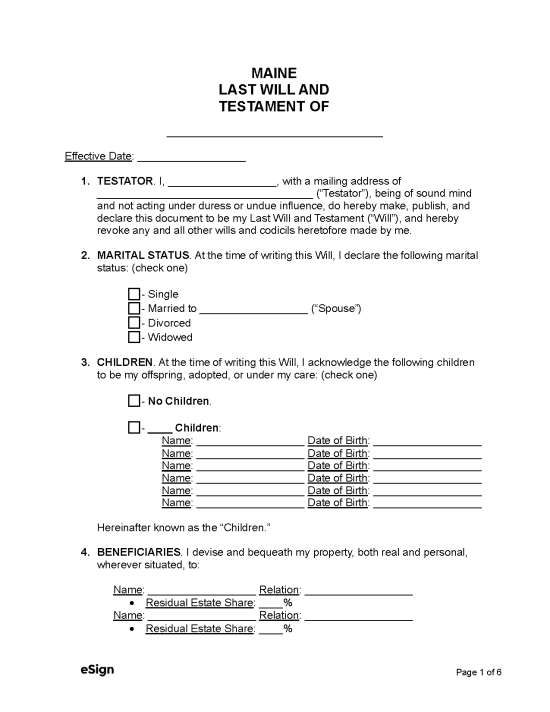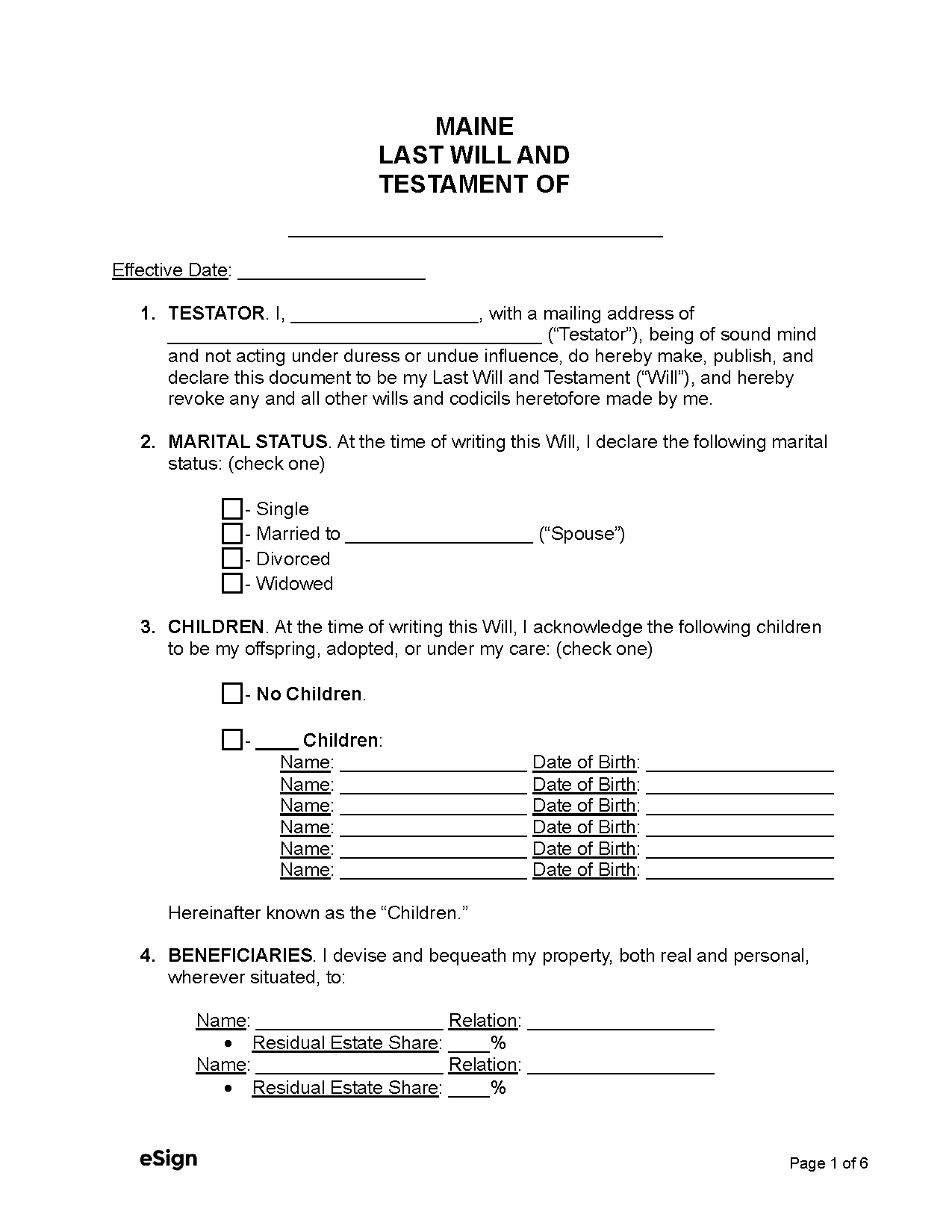State Laws
An individual of sound mind who is at least 18 years old, or a legally emancipated minor, may create a will.[1]
Holographic Wills – A handwritten will is valid if signed by the testator and in their handwriting.[2]
Revocation – A will is no longer valid if destroyed by the testator or if a subsequent will is executed.[3]
Signing Requirements – A will must be signed by the testator and two competent witnesses.[4]
Probate Process in Maine (5 steps)
In Maine, individuals must file for probate within three years following the decedent’s passing.[5] Filing may be done in person at the local Probate Court or online.
The following is meant to be a general overview of the probate process. It is recommended that executors/personal representatives consult with an attorney if they’re unsure of any step.
1. Open Estate
A personal representative is the person who will be managing the estate’s affairs. They are usually appointed in the will, though if no one is named, the decedent’s spouse, beneficiary, or another interested party may petition the court to be appointed.[7]
Opening an estate requires submitting the following documents to Probate Court, as well as a filing fee based on the estate’s value:[8]
- Original Will – The filing must include the decedent’s original will.
- Death Certificate – The death certificate can be requested by mailing the required documentation (and a $15 fee) to the Vital Records office.
- Application for Informal Probate of Will or Appointment of PR DE-20(I) – This form petitions the court for the personal representative’s appointment and for the informal probate of the will.
-
Acceptance of Appointment DE-104 – This form allows the personal representative to formally accept their duties.
-
Certificate of Value DE-401(A) – The personal representative must use this form to provide the estimated estate value.
2. Receive Letters of Authority
Once the court approves the filed documents, they will issue the personal representative Letters of Authority. This document grants the personal representative authority to administer the estate and perform their duties.
In some cases, a will may require that the personal representative post bond before they may receive Letters of Authority. If so, the completed Bond for Personal Representative DE-403 form must be filed, and the personal representative should pledge a bond as collateral.
3. Distribute Notices
4. Inventory and Accounting
The Probate Inventory DE-405 form must be completed and mailed to interested parties within three months of the personal representative’s appointment.[11] Additionally, the Probate Account DE-406 form must be completed and filed with the court.
5. Close Estate
After the Inventory and Account are filed, the personal representative should settle any claims and distribute the estate’s assets as outlined in the will. Once completed, they may close the estate by filing the Sworn Statement DE-602 no earlier than six months after their appointment and nine months after the decedent’s death.[12]
All interested parties must receive a copy of the Sworn Statement and Account. One year after the Sworn Statement’s filing passing, the personal representative is discharged from their duties.

